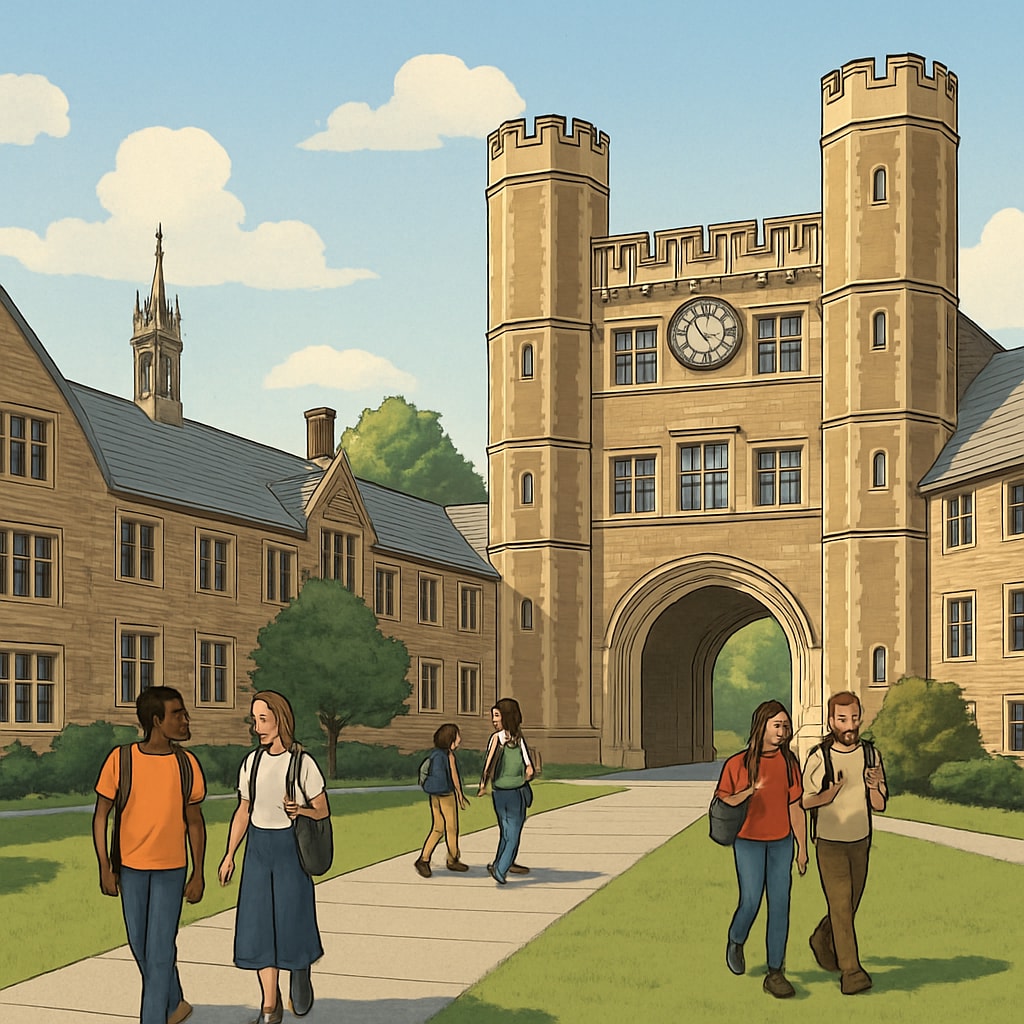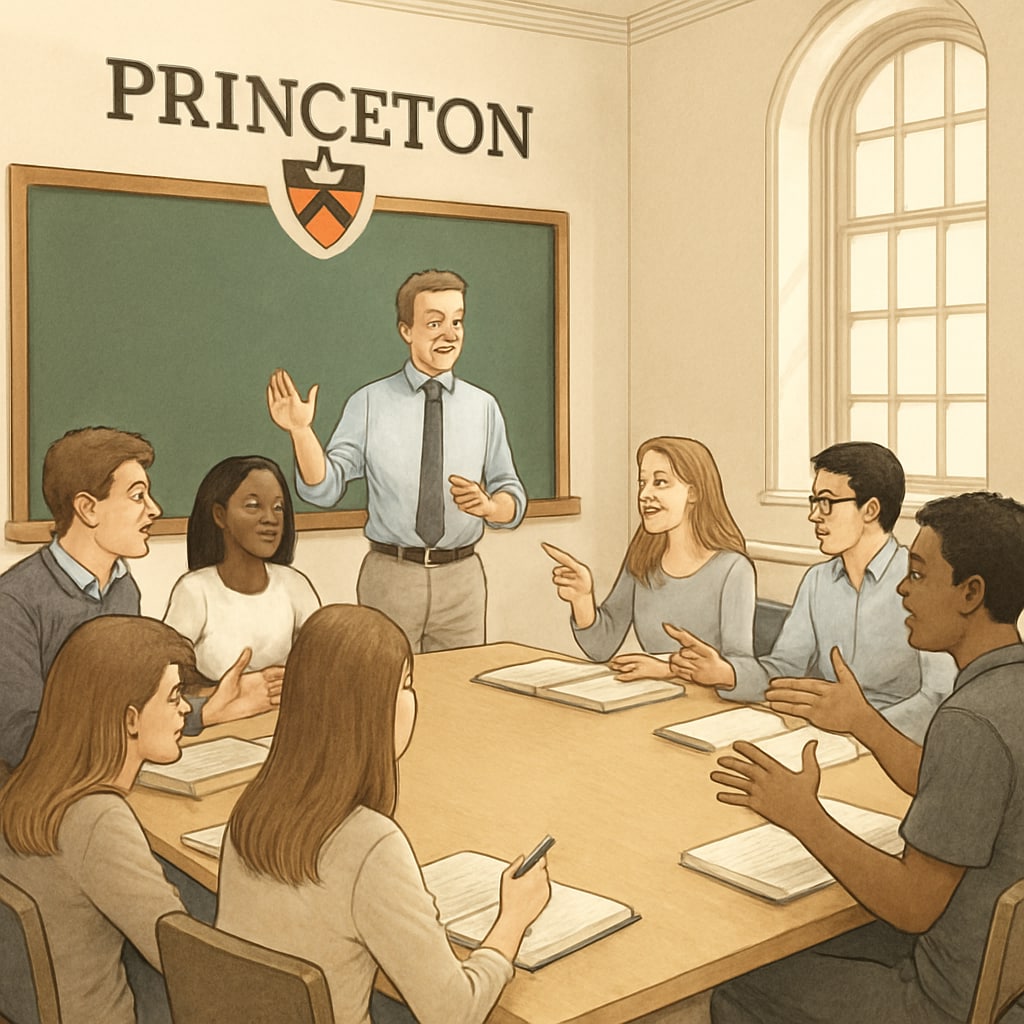The names of Ivy League schools, including Princeton, have long been synonymous with excellence, privilege, and success. However, questions are increasingly being raised about whether the reputation of these institutions truly reflects their educational value or if they are, in fact, overrated. The allure of these elite universities often overshadows their shortcomings, causing many families to chase the dream of admission without fully evaluating whether the reality matches the promise.
Is the Ivy League Reputation Justified?
The Ivy League is often regarded as the pinnacle of higher education, with schools like Princeton leading the charge. But what exactly makes these institutions so highly regarded? Is it their academic rigor, the quality of their faculty, or simply the prestige associated with their names? A closer look reveals a more nuanced picture.
While Ivy League schools undeniably offer access to extensive resources, influential alumni networks, and a certain level of prestige, their actual educational practices are not always superior to those of less celebrated institutions. For example, many state universities and liberal arts colleges boast smaller class sizes, more accessible faculty, and equally rigorous academic programs. Yet, these schools do not enjoy the same level of attention or admiration.
Moreover, the emphasis on exclusivity—reflected in admission rates that hover around 4-5%—often inflates the perceived value of Ivy League institutions. This exclusivity creates a “halo effect,” where their rarity is mistaken for unparalleled quality. But as some critics argue, exclusivity is not a guarantee of educational excellence.

The Princeton Paradox: Prestige vs. Reality
Princeton, often considered one of the crown jewels of the Ivy League, serves as an interesting case study. Its reputation as an academic powerhouse is well-established, but does this reputation hold up under scrutiny?
One area of concern is the quality of undergraduate instruction. While Princeton does prioritize undergraduate education more than some of its Ivy League peers, students often report mixed experiences. Some courses are taught by world-renowned professors, but others rely heavily on teaching assistants (TAs), particularly in large lecture settings. This has led to questions about whether students are receiving the personalized, high-quality education they anticipate when enrolling.
Additionally, the pressure-cooker environment at Princeton can sometimes detract from the overall educational experience. Students often cite overwhelming workloads and intense competition as major stressors. These factors can hinder learning and personal growth, arguably undermining the supposed benefits of attending such a prestigious institution.

Rethinking the Ivy League Obsession for K-12 Families
For many parents and students in the K-12 system, the Ivy League represents the ultimate goal. But is this obsession with elite institutions truly beneficial? The answer may lie in adopting a more balanced perspective.
Here are three key considerations for families:
- Focus on Fit: The “best” college isn’t necessarily the most prestigious one. Factors such as academic programs, campus culture, and location should take precedence over brand name.
- Evaluate Outcomes: Research shows that graduates from less prestigious schools often achieve comparable levels of success in their careers, provided they excel in their fields. The value of a degree lies more in what the student makes of their opportunities than in the institution’s name.
- Consider Financial Implications: Ivy League tuition and fees often exceed $70,000 annually. Families should weigh this investment against the potential return, especially when excellent education can be obtained elsewhere for a fraction of the cost.
By shifting the focus away from prestige and toward individual goals and needs, families can make more informed decisions that prioritize long-term success over short-term status.
Conclusion: Beyond the Ivy League Mystique
Ivy League schools like Princeton undeniably hold a unique place in the landscape of higher education. Their names carry weight, their alumni networks are powerful, and their campuses are iconic. However, as this article has explored, their reputation does not always align with the reality of the educational experience they provide.
For students and families navigating the college admissions process, the key takeaway is this: prestige is not a proxy for quality. By looking beyond the Ivy League mystique and considering a broader range of educational opportunities, students can find institutions that truly align with their needs, aspirations, and values.
Ultimately, the goal should not be to chase a name but to seek an education that fosters growth, curiosity, and success—regardless of the institution’s place in the rankings.
Readability guidance: This article uses short paragraphs, transitions, and lists to enhance readability. The content balances critique with actionable advice, all while maintaining a professional tone.


